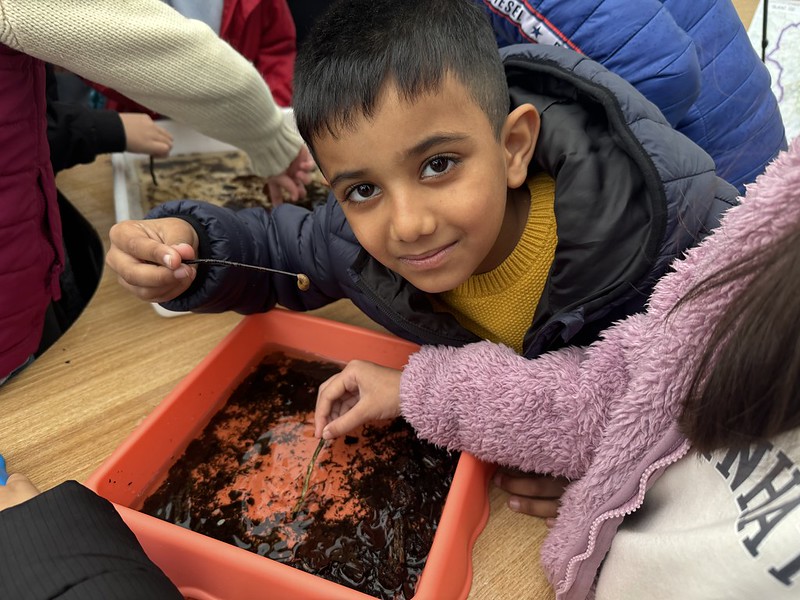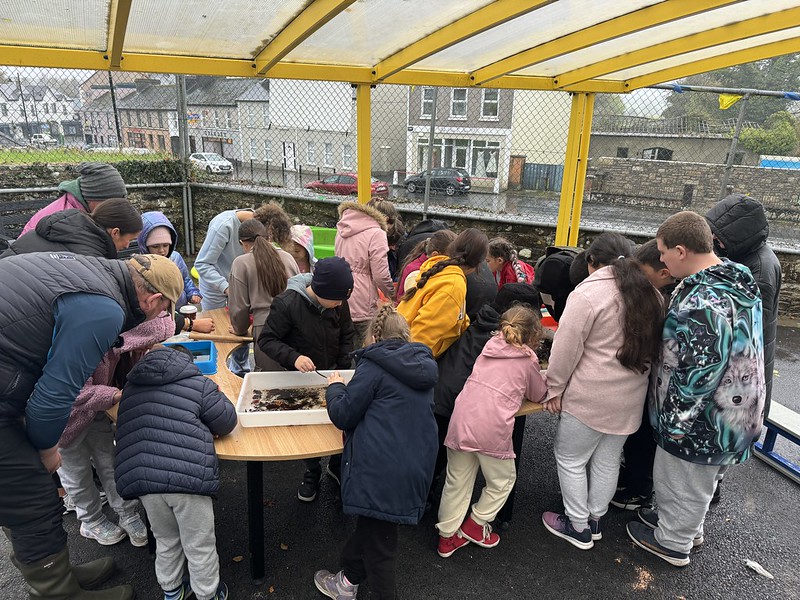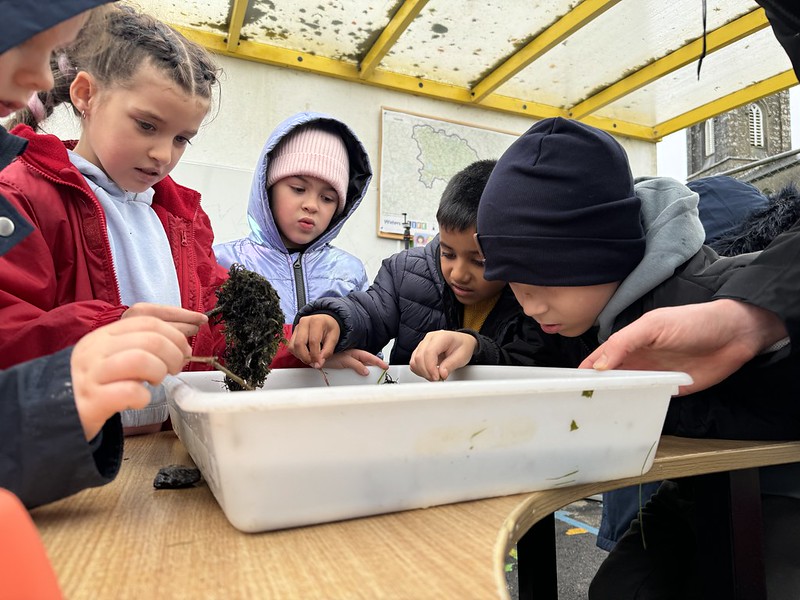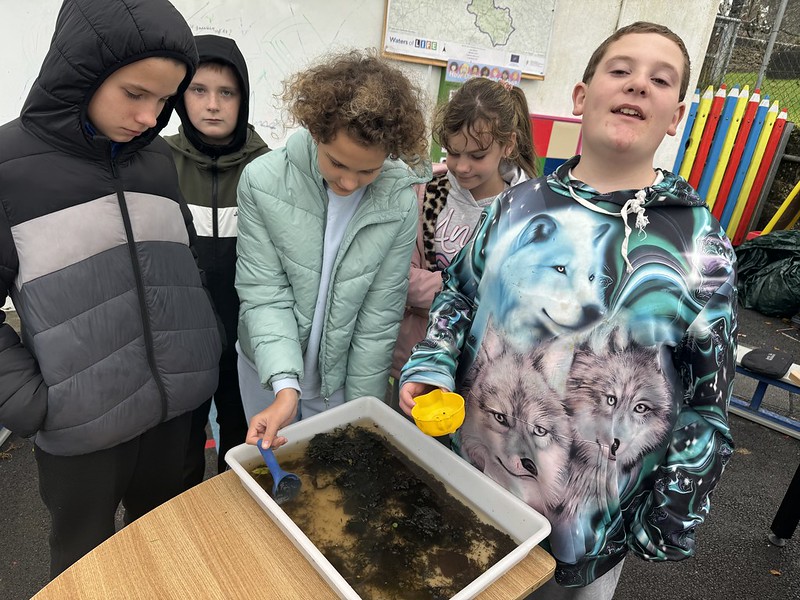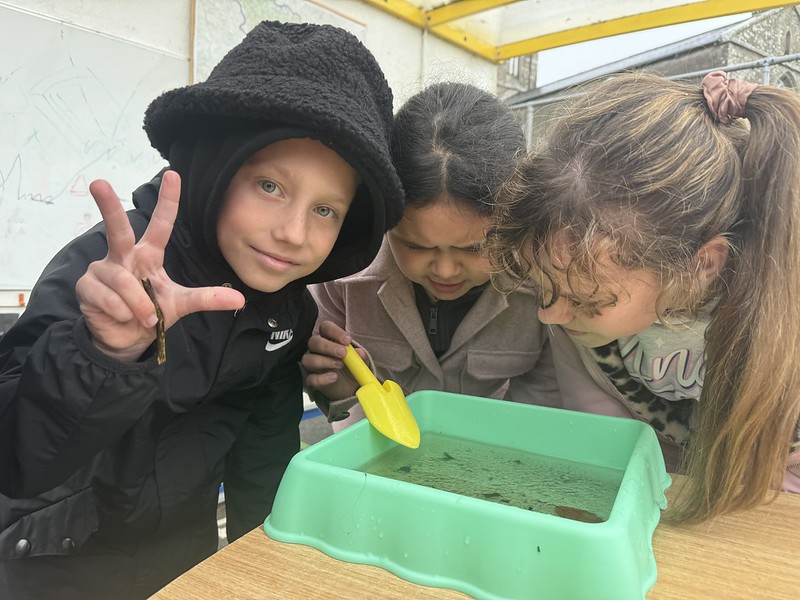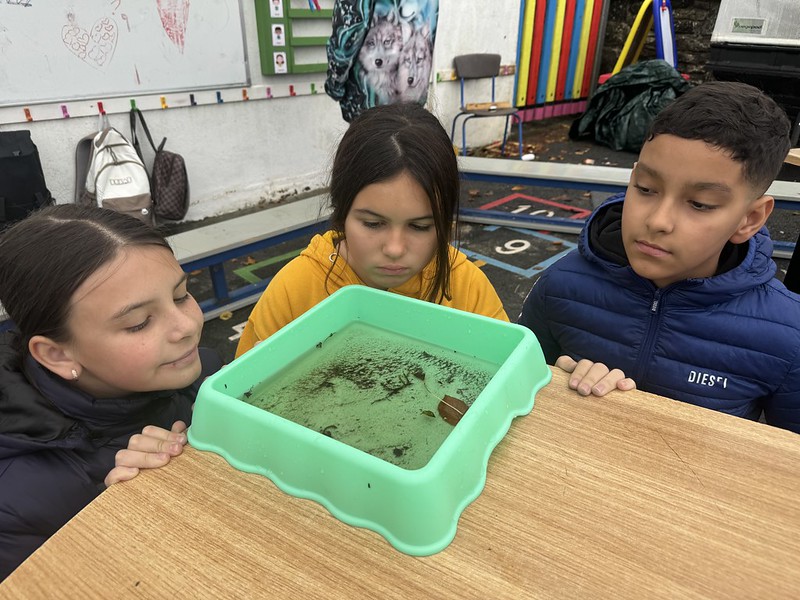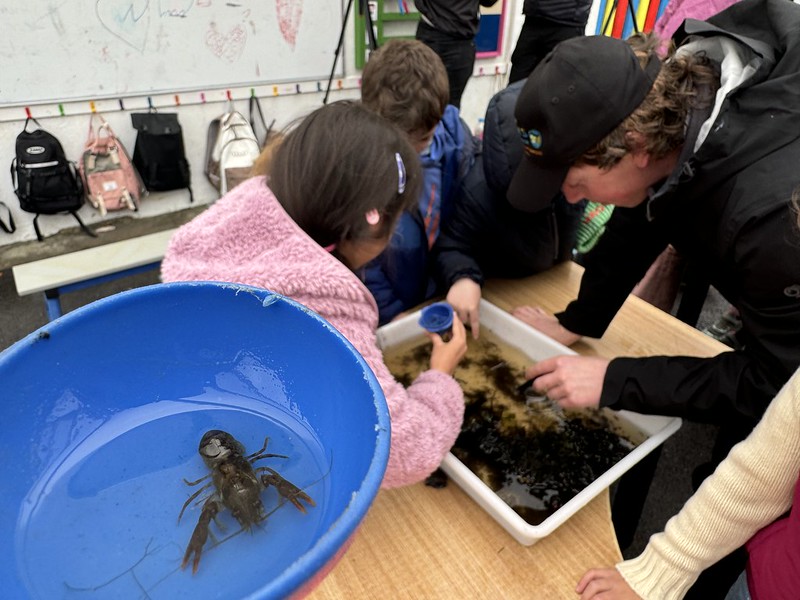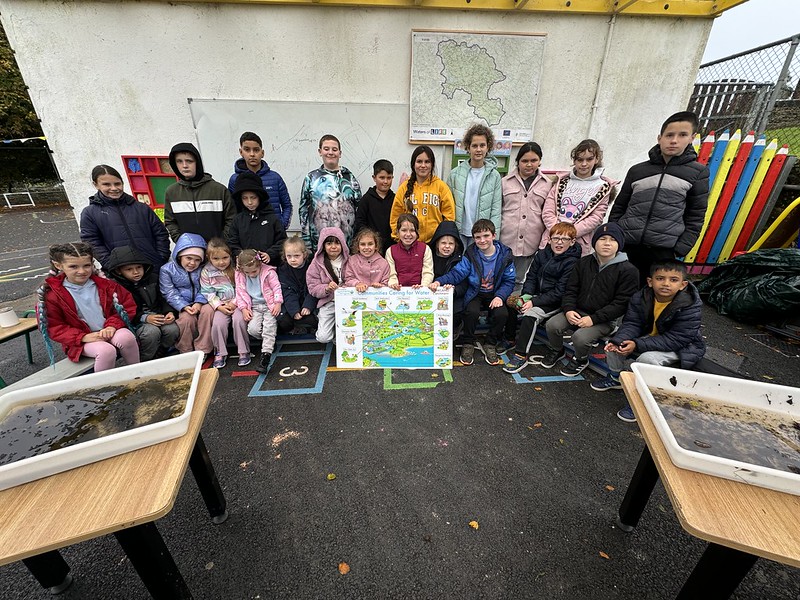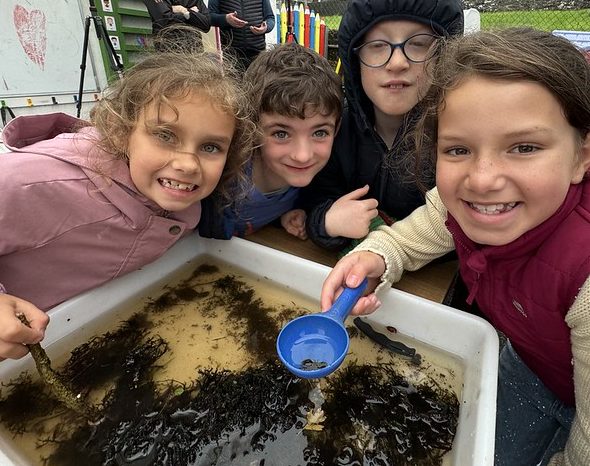
WATCH: Ballinlough NS Learn How Water Quality Supports Life
Pupils of Ballinlough National School saw up-close how water quality supports life in rivers with a visit from the Waters of LIFE project.
The 37-pupil school devoted an afternoon in their outdoor classroom to learning about water quality and the geography of their local sub-catchment.
It was a hands-on experience where children got to meet the types of creepy crawly that live at the bottom of a river bed.
Such macroinvertebrates are important story tellers for water quality. They act as biological indicators for a water body’s ecological status.
Ballinlough National School is in west Roscommon and they have often used the Rectory Field beside their school to learn about biodiversity.
On this occasion, Catchment Scientist John Kelly (Waters of LIFE) and Community Water Officer David Rafter (LAWPRO) used a kick net to gather samples of macroinvertebrates from a stream in the field and bring them to the school’s outdoor classroom. The Local Authority Waters Programme (LAWPRO) are a project partner of Waters of LIFE.
The stream is a tributary of the Islands_10 water body in the Islands Demonstration sub-catchment. The Environmental Protection Agency (EPA) have assigned that part of the Islands river with a moderate ecological status of water quality. There is an objective to restore it to good water quality under the Water Framework Directive. It is affected by poor habitat quality, land drainage and agriculture.
The project team also brought a sample from the Ballygarriff river tributary in the Springfield_20 water body. The Springfield river has good ecological status and an objective to protect its status. In addition to macroinvertebrates, the children also found crayfish in the Springfield river’s kick sample.
Waters of LIFE are looking forward to working with the school over the life time of the project. It is hoped this will include support for their involvement in the National Council for Special Education (NCSE) pilot project on Universal Design for Learning (UDL).
